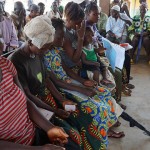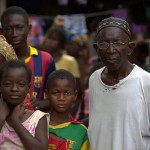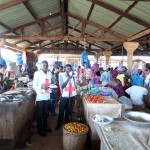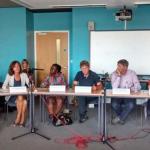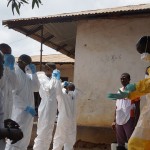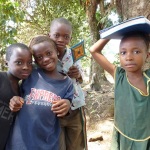The Ebola outbreak in West Africa differed from others in its unprecedented size and the high proportion of human-to-human transmission occurring in the community. This report presents an analysis of the impact of Community Care Centres (CCCs) on communities in Sierra Leone. Much has been written about the leadership and coordination of the response – or the lack of it. The emphasis of this evaluation is on the views on the development, implementation and relevance of the CCCs from the perspective of the communities next
Continue reading →
The present document is the eighth and final report in a series presenting descriptive results of a survey of responses to Ebola and Ebola control in 26 villages in all three provinces of rural Sierra Leone, fieldwork for which was undertaken in December 2014. The report covers three villages in Gbo chiefdom, in Bo District. Some emphasis is placed on how inconsistencies of Ebola response are perceived at local level, and undermine trust. Ebola responders should not only improve the quality of their messages, but
Continue reading →
Sociocultural, economic, and political dimensions play a defining part in epidemics and pandemics. Anthropological involvement is increasingly recognised as important, however, integration of social sciences during global health crises remains, for the most part, delayed, inconsistent, and distant from the centre of decision making and resource prioritisation. This problem is representative of much larger systemic barriers to academic and practitioner coordination in global health, humanitarian aid, and development practice. While anthropological insights on-the-ground can and do inform extraordinary containment and education efforts during medical humanitarian emergencies, they are
Continue reading →
Ebola’s reputation is fearsome. Its horrifying symptoms, quick human-to-human transmission, and exotic locale seem ready-made for a thriller movie. Indeed, in the midst of the largest Ebola virus outbreak ever, a real-time script is emerging. The story goes something like this: tribal habits, including archaic burial customs and a penchant for bush meat, have led to the emergence and spread of Ebola virus disease. The solution to the terrifying epidemic is to put patients in treatment centers, which are set up and staffed by foreign
Continue reading →
The current outbreak of Ebola Virus Disease in Upper West Africa is the largest ever recorded. Molecular evidence suggests spread has been almost exclusively through human-to-human contact. Social factors are thus clearly important to understand the epidemic and ways in which it might be stopped, but these factors have so far been little analyzed. The present paper focuses on Sierra Leone, and provides data on the least understood part of the epidemic – the largely undocumented spread of Ebola in rural areas. Various forms of
Continue reading →
